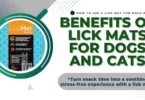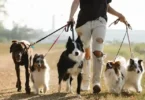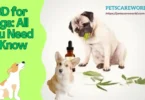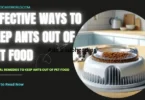We all want the best for our pets, and ensuring they receive the right nutrition is essential for their health and happiness. But what happens when we have both cats and dogs in our households? Can cats eat dog food? It’s a question that often arises. It’s essential to understand the differences in their dietary needs to provide them with the best care. We will explore whether cats can safely consume dog food, the potential risks.
Can cats eat dog food? Understanding the Differences

Cats and dogs have distinct dietary requirements due to their evolutionary history and physiological differences. While both are carnivores, cats are obligate carnivores, meaning they require a higher amount of protein in their diets compared to dogs. Cats also need specific nutrients like taurine, which is not found in sufficient quantities in dog food. Therefore, feeding your cat or dog food on a regular diet is not recommended.
The Risks of Feeding Dog Food to Cats

Feeding your cat or dog food can pose several risks to their health.
- Nutritional Imbalance: Dog food lacks the essential nutrients that cats need for optimal health, such as taurine and specific vitamins. Prolonged consumption of dog food can lead to malnutrition in cats.
- Digestive Issues: Cats and dogs have different digestive systems. Feeding cat-inappropriate food, like dog food, can cause gastrointestinal distress, leading to vomiting, diarrhea, or other digestive problems.
- Weight Management: Dog food might not be formulated to address a cat’s weight management needs, potentially leading to obesity or other weight-related issues.
- Allergies: Ingredients in dog food that are harmless to dogs might trigger allergies in cats, causing skin issues, itching, or respiratory problems.
What to Do If Your Cat Eats Dog Food

Accidental consumption of dog food by your cat is not an emergency, but it’s essential to monitor your cat for any adverse reactions. If you suspect your cat has eaten dog food, here’s what you should do:
- Observe: Keep an eye on your cat for any signs of gastrointestinal distress, allergies, or changes in behavior. If you notice any unusual symptoms, contact your veterinarian.
- Hydration: Ensure your cat stays hydrated. Provide fresh water and monitor their water intake.
- Consult a Vet: If your cat has ingested a significant amount of dog food or shows any signs of discomfort, it’s advisable to consult your veterinarian for professional guidance.
Conclusion
While it might be tempting to let your cat nibble on dog food, it’s vital to prioritize your feline friend’s health. Cats have unique dietary needs that dog food simply doesn’t meet. To ensure your cat remains happy and healthy, feed them a diet specially formulated for cats and consult your veterinarian for any concerns. Your cat’s well-being should always be the top priority.
Frequently Asked Questions (FAQs)
-
Can a small amount of dog food harm my cat?
In most cases, a small nibble of dog food is unlikely to cause immediate harm. However, prolonged consumption can lead to health issues.
-
What if my cat prefers dog food over cat food?
It’s essential to encourage your cat to eat a proper diet for their well-being. Consult your veterinarian for guidance on transitioning to suitable cat food.
-
Are there any situations where it’s safe for cats to eat dog food?
While it’s generally not recommended, in rare instances, a tiny amount of dog food might not pose an immediate threat. However, this should not become a regular practice.
-
Can sharing dog food occasionally be harmful?
Infrequent sharing is unlikely to cause severe harm, but it’s best to avoid it altogether to ensure your cat’s optimal health.
-
What is the best diet for cats?
A diet specifically formulated for cats, high in protein and essential nutrients, is the best choice to keep your cat healthy and thriving.
-
How can I prevent my cat from eating dog food?
Store cat food and dog food separately, and ensure your cat doesn’t have access to the dog’s bowl.





Leave a Comment
You must be logged in to post a comment.